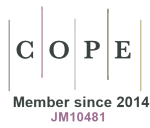Protocol for a multicenter, randomised controlled trial of surgeon-directed home therapy vs. outpatient rehabilitation by physical therapists for reverse total shoulder arthroplasty: the SHORT trial
DOI:
https://doi.org/10.1186/s40945-021-00121-2Keywords:
Reverse total shoulder arthroplasty, Rehabilitation, Home therapy, Physical therapy, Shoulder arthritis, Shoulder, Clinical outcomes, Patient reported outcomes, Complications, CostsAbstract
Background: Reverse total shoulder arthroplasty (RTSA) has emerged as a successful surgery with expanding indications. Outcomes may be influenced by post-operative rehabilitation; however, there is a dearth of research regarding optimal rehabilitation strategy following RTSA. The primary purpose of this study is to compare patient reported and clinical outcomes after RTSA in two groups: in one group rehabilitation is directed by formal, outpatient clinic-based physical therapists (PT group) as compared to a home therapy group, in which patients are instructed in their rehabilitative exercises by surgeons at post-operative appointments (HT group). Secondary aims include comparisons of complications, cost of care and quality of life between the two groups. Methods: This randomised controlled trial has commenced at seven sites across the United States. Data is being collected on 200 subjects by clinical research assistants pre-operatively and post-operatively at 2, 6, and 12 weeks, 6 months, 1 and 2 year visits. The following variables are being assessed: American Shoulder and Elbow Surgeons (ASES), pain level using the numeric pain scale, the Single Assessment Numeric Evaluation (SANE) score, and shoulder active and passive range of motion for analysis of the primary aim. Chi square and t-tests will be used to measure differences in baseline characteristics of both groups. Repeated measures linear mixed effects modeling for measurement of differences will be used for outcomes associated with ASES and SANE and scores, and range of motion measures. Secondary aims will be analyzed for comparison of complications, cost, and quality of life assessment scores using data obtained from the PROMIS 29 v. 2, questionnaires administered at standard of care post-operative visits, and the electronic health record. Subjects will be allowed to crossover between the PT and HT groups, and analysis will include both intention-to-treat including patients who crossed over, and a second with cross-over patients removed, truncated to the time they crossed over. Discussion: RTSA is being performed with increasing frequency, and the optimal rehabilitation strategy is unclear. This study will help clarify the role of formal physical therapy with particular consideration to outcomes, cost, and complications. In addition, this study will evaluate a proposed rehabilitation strategy.Downloads
Download data is not yet available.
Downloads
Published
2021-12-10
How to Cite
Kennedy, J. S., Reinke, E. K., Friedman, L. G. M., Cook, C., Forsythe, B., Gillespie, R., Hatzidakis, A., Jawa, A., Johnston, P., Nagda, S., Nicholson, G., Sears, B., Wiesel, B., Garrigues, G. E., Hagen, C., Hong, I., Roach, M., Jones, N., Mahendraraj, K., Michaelson, E., Bader, J., Mauter, L., Mengers, S., Renko, N., Strony, J., Hart, P., Steele, E., Naylor, A., Gaudette, J., & Sprengel, K. (2021). Protocol for a multicenter, randomised controlled trial of surgeon-directed home therapy vs. outpatient rehabilitation by physical therapists for reverse total shoulder arthroplasty: the SHORT trial. Archives of Physiotherapy, 11(1). https://doi.org/10.1186/s40945-021-00121-2
Issue
Section
Methodology Article
License
Copyright (c) 2021 The Authors

This work is licensed under a Creative Commons Attribution-NonCommercial 4.0 International License.









